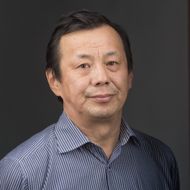- A
- A
- A
- ABC
- ABC
- ABC
- А
- А
- А
- А
- А
- HSE Campus in St. Petersburg
- St Petersburg School of Economics and Management
- Department of Economics
- News
- New International Labs at HSE St. Petersburg to Study Economy of Health and Game Theory
Saint Petersburg, Kantemirovskaya 3 A.
Orlando G., Sportelli M.
Ekaterinburg: Springer, 2022.
Afanasev K., Zhuravleva T., Hannum C.
Journal of Economic Interaction and Coordination. 2025.
Sorokin K., Andrey Z., Levin A. et al.
In bk.: Data Analytics and Management in Data Intensive Domains: 25th International Conference, DAMDID/RCDL 2023, Moscow, Russia, October 24–27, 2023, Revised Selected Papers. Vol. 2086: Communications in Computer and Information Science. Springer, 2024. P. 77-87.
Shchiptsova A., Obersteiner M.
arxiv.org. General Economics. Cornell University, 2025

New International Labs at HSE St. Petersburg to Study Economy of Health and Game Theory
International Laboratory for Health Economics, Management & Policy
HSE St. Petersburg has significant experience in researching healthcare economics and policy, but this experience has thus far only been reflected in the publications of a handful of university researchers. The new laboratory should lead to the systematisation and institutionalisation of such research.
A portion of proposed research projects will be based on data from the Russia Longitudinal Monitoring Survey of the Higher School of Economics (HSE-RLMS), such as data on smoking and drinking problems, as one interesting example. Another area of focus will be tied with cardiovascular disease in the northwest region of Russia. The laboratory will also carry out comparative research (on BRICS in particular) and look at how healthcare economics and management affect the labour market.
The St. Petersburg laboratory is prepared to carry out multidisciplinary work as well, and the lab also plans to work closely with colleagues in Moscow who study similar topics. The head of the laboratory will be HSE Professor Christopher Gerry, and the Academic Supervisor – University of Leeds Professor Paul Kind, who is a well-known British specialist on methods of clinical and economic evaluation in healthcare.
International Laboratory for Game Theory and Decision-Making
It is not difficult to see why this laboratory is being created specifically in St. Petersburg, as the city's mathematicians were actually the founding members of the study of game theory in Russia. In particular, researchers from the St. Petersburg Institute for Economics and Mathematics will form the backbone of the laboratory, while Professor Elena Yanovskaya will head the new lab. The academic supervisor will be University of Glasgow Professor Herve Moulin, whom HSE Vice Rector Maria Yudkevich considers to be a ‘real live classic’ in game theory. One of the laboratory’s aims will be the economic application of game theory, and lab researchers will work closely with the International Laboratory of Decision Choice and Analysis, which operates in Moscow and is headed by tenured Professor Fuad Aleskerov and Nobel Laureate Eric Maskin.
